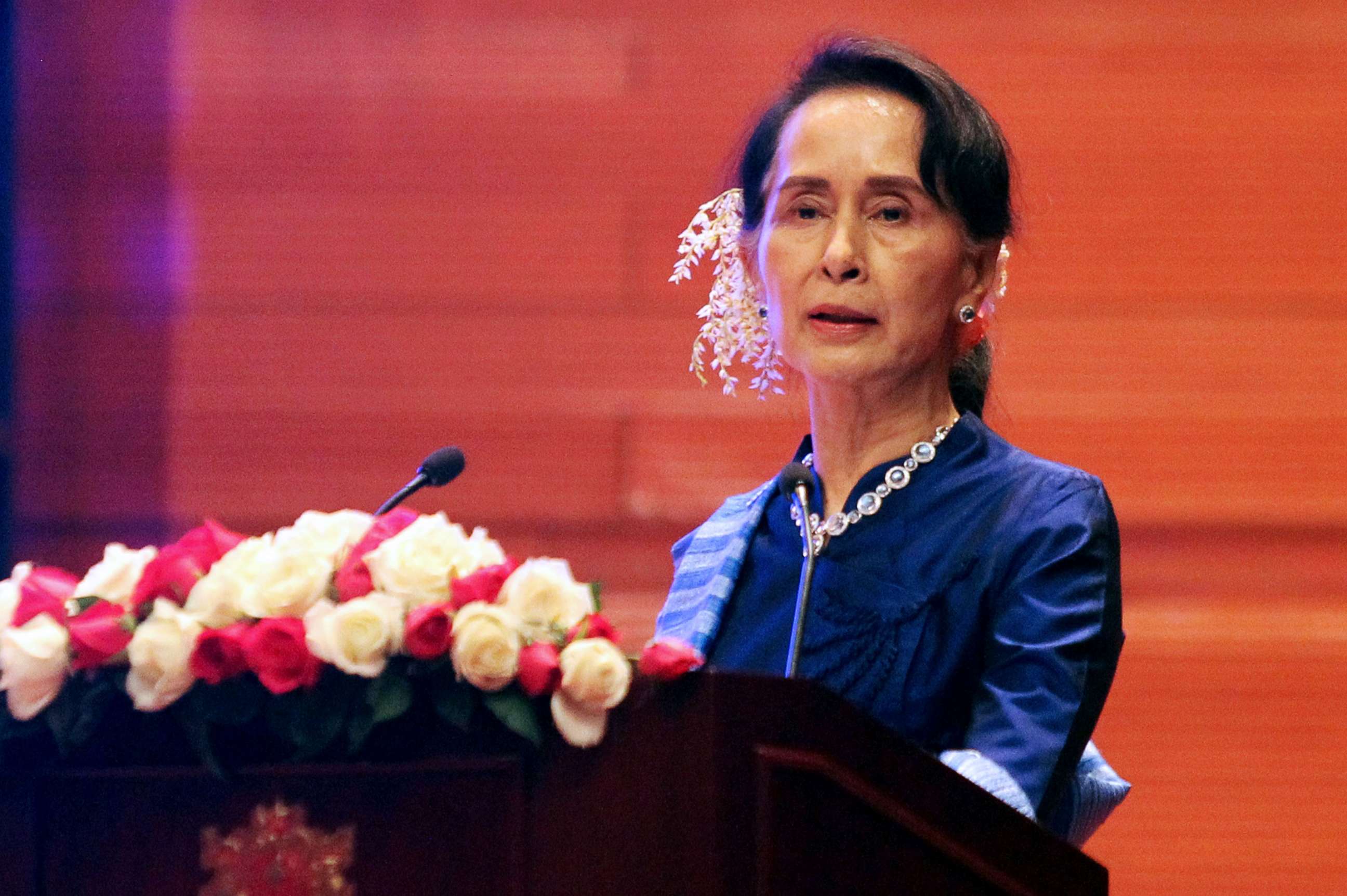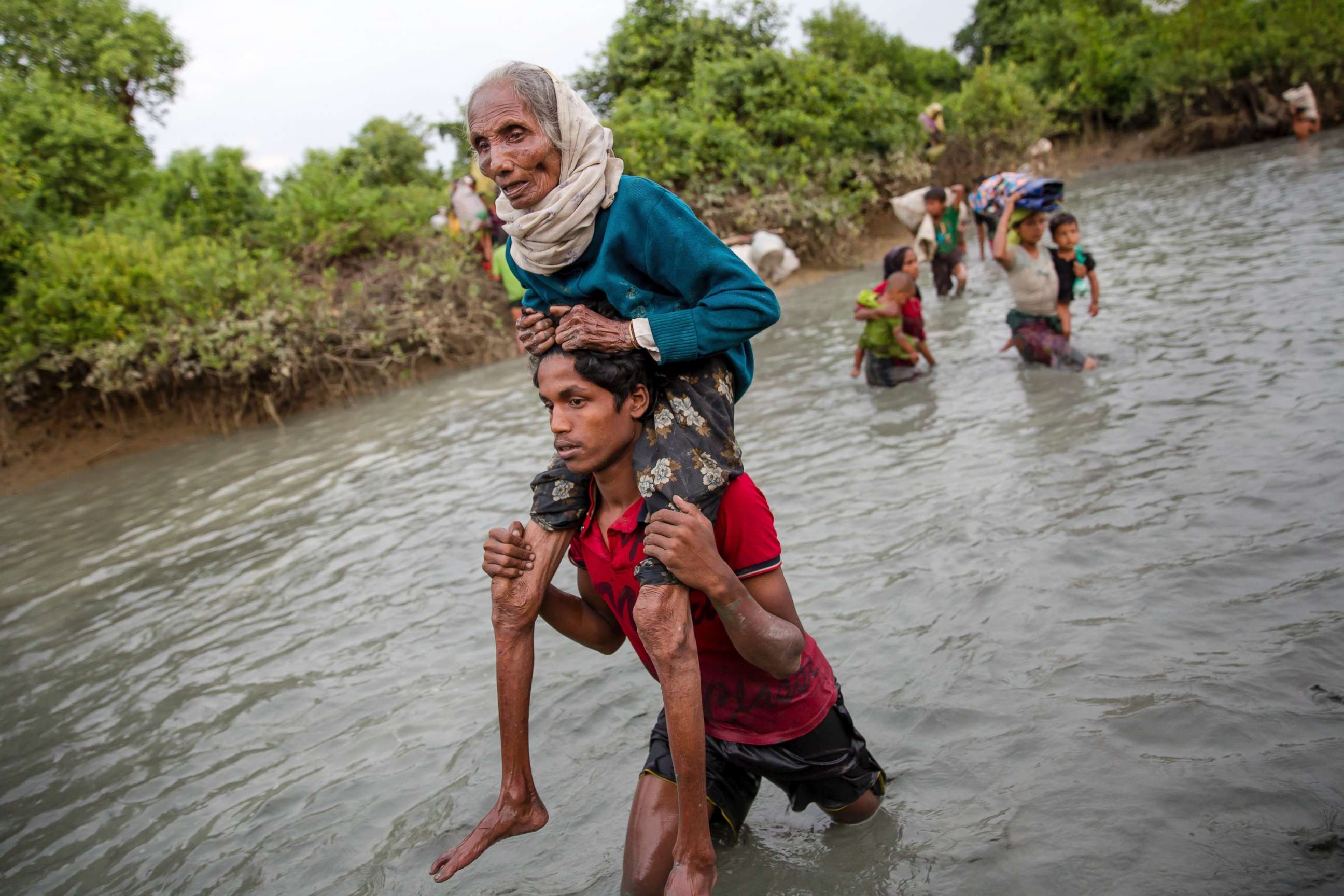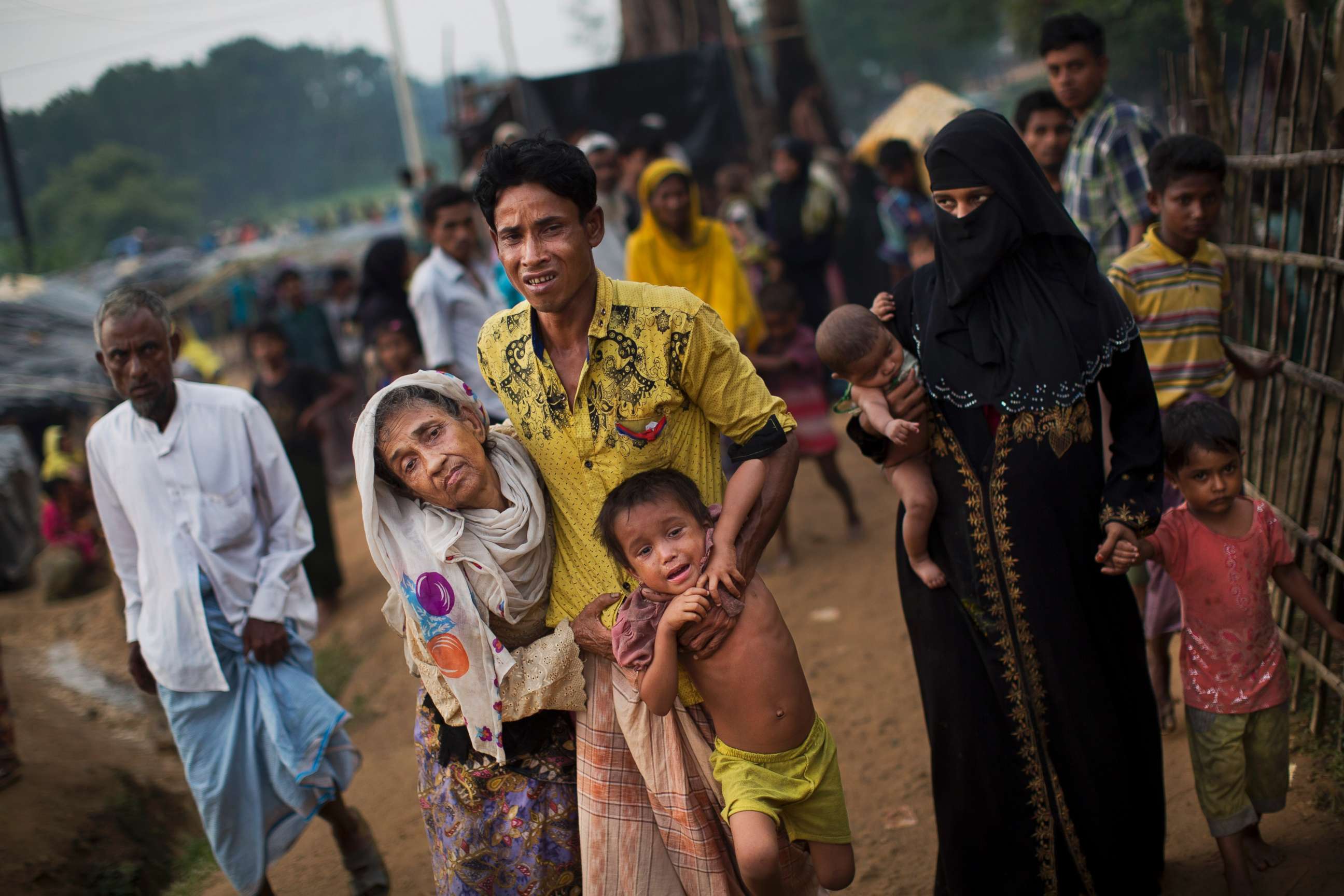Holocaust museum rescinds award to Aung San Suu Kyi
It said she had failed to act against her country's persecution of the Rohingya.
The U.S. Holocaust Memorial Museum said Wednesday it was rescinding a major human rights award it gave Nobel laureate Aung San Suu Kyi in 2012, for her failure to act against her country's persecution of its Rohingya minority.
In a letter sent Tuesday to Suu Kyi, Myanmar's civilian leader, the Washington museum said it was revoking the Elie Wiesel Award because Suu Kyi had remained silent as the Myanmar military carried out a violent campaign against the Muslim Rohingya people in recent years.
"As the military's attacks against the Rohingya unfolded in 2016 and 2017, we had hoped that you -- as someone we and many others have celebrated for your commitment to human dignity and universal human rights -- would have done something to condemn and stop the military’s brutal campaign and to express solidarity with the targeted Rohingya population," Sara J. Bloomfield, the museum's director, wrote in a letter the museum released Wednesday.

It said Suu Kyi's party, the National League for Democracy, under her leadership had "instead refused to cooperate with United Nations investigators, promulgated hateful rhetoric against the Rohingya community, and denied access to and cracked down on journalists trying to uncover the scope of the crimes in Rakhine State," the region of Myanmar where much of the atrocities against the Rohingya are alleged to have occurred.
The museum awards the Elie Wiesel Award annually to "internationally prominent individuals whose actions have advanced the museum’s vision of a world where people confront hatred, prevent genocide, and promote human dignity," it says on its website. It is named for Holocaust survivor and Nobel laureate Elie Wiesel.

The United Nations has said that ethnic cleansing has been carried out against the Rohingya population in Myanmar, and around 700,000 Rohingya people have fled to Bangladesh since the summer.
Suu Kyi has been celebrated as a human rights figure for decades and won the Nobel Peace Prize in 1991. She spent years under house arrest for opposing Myanmar's military leaders before her party won at the polls in 2015, propelling her to become state counsellor.
Her general silence over the Rohingya crisis, though, has drawn opprobrium worldwide.
"We understand the difficult situation you must face in confronting decades of military misrule and violence in your country and that institution’s still powerful constitutional role," Bloomfield wrote to Suu Kyi. "However, the military’s orchestration of the crimes against Rohingya and the severity of the atrocities in recent months demand that you use your moral authority to address this situation."
